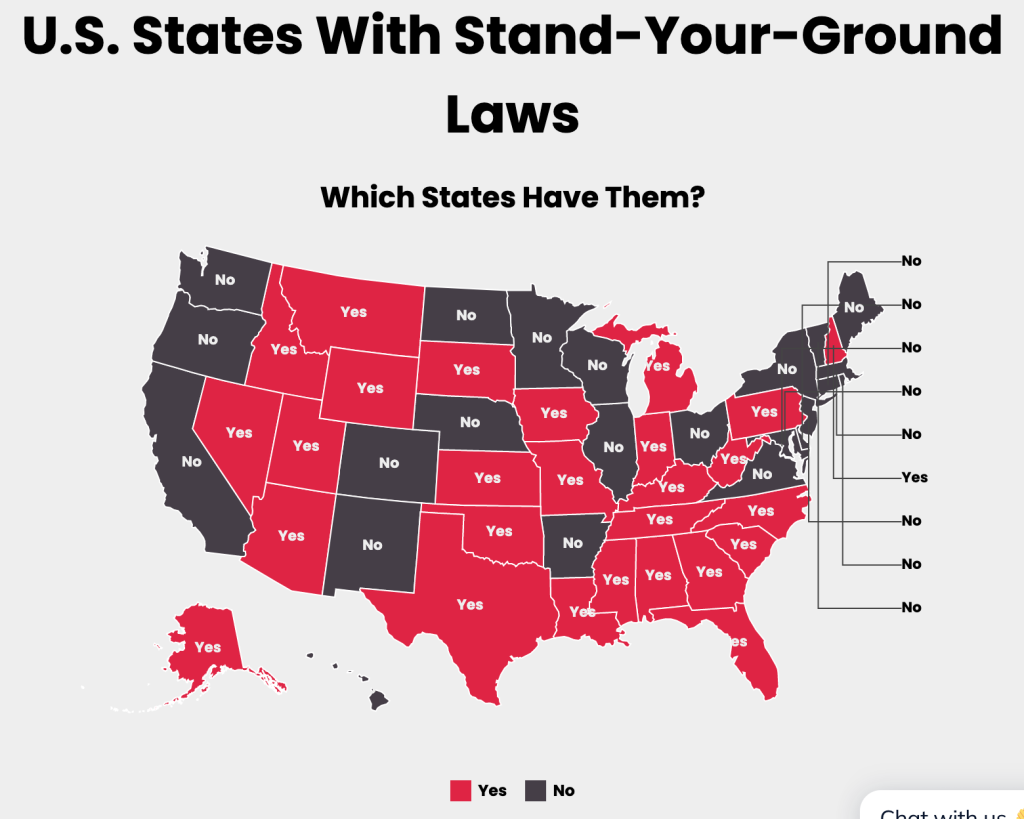Riverside Weapons Charges Attorney
Laws and regulations regarding the possession and use of weapons in the state of California can be complex. Often, you may not even realize you are breaking a rule until it is too late.
At the Law Offices of Graham D. Donath, APC, our Riverside weapons charges lawyers know a simple mistake can lead to steep fines, community service, and even loss of custodial rights. That is why we work hard to clear your name and minimize any charges.
Table of Contents
Types of Weapon Charges
- Possession of a deadly weapon. In the state of California, it is unlawful to possess a deadly weapon, which may include unregistered firearms, knives, or brass knuckles.
- Possession of brass knuckles. It is illegal to possess or brandish metal or wooden knuckles.
- Possession of a firearm by a felon or other prohibited person. All California residents who wish to possess a firearm must pass a Department of Justice background check. You may be charged with this crime if you are found in possession of a firearm after failing this background check.
- Possession of a concealed firearm. All concealed weapons carriers must have applicable licensing.
- Possession of a loaded firearm. It is illegal in California to carry a loaded weapon in a public or prohibited place.
- Possession of a switchblade. Carrying a switchblade on your person in excess of two inches is unlawful in California.
- Threatening with a weapon. Even if you are licensed to carry a weapon, you may not brandish it or use it to threaten someone else’s life. Threatening someone with a weapon, even if you do not actually use the weapon, can be a charged as a violent crime and you would need to consult with a Riverside violent crimes attorney.
- Assault with a firearm. Defined as attacking someone with a handgun, rifle, or shotgun.
Depending on the number of prior offenses you have or the circumstances surrounding the crime, you may be charged with a misdemeanor or felony. Unfortunately, many weapons charges in California are classified as felonies. If it is your first offense, you may only be charged with a misdemeanor. The state of California charges these crimes differently.
- Misdemeanor. These kinds of weapons charges carry a maximum sentence of up to one year in jail and up to $1,000 in fines.
- Felony. Weapons charges classified as felonies often carry the threat of jail time. These time frames vary greatly, from 1-20 years. Additionally, these types of offenses are subject to fines.
As mentioned, punishments can vary from case to case. However, below are some general California guidelines for certain assaults with a deadly weapon. Consult with a Riverside assault with a deadly weapon lawyer as soon as possible to prepare a diligent defense.
Defenses for Weapons Charges in California
If you are charged with a weapons-related crime, the defense we craft for you depends on your individual circumstances. However, there are a few general defenses our Riverside weapons charges attorneys can take to the prosecution:
- Improper search and seizure: Our Riverside weapons charges attorneys will take a look at the police report and make sure the authorities followed proper protocol. If they did not have a valid warrant or establish probable cause, your case may be dismissed.
- False allegations: Sometimes parties accuse another of false allegations out of worry for their own involvement, jealousy or a variety of reasons. Each case is different, and false allegations can often be attacked through conflicting evidence and proper cross-examination of the witness.
- Self-defense: If you felt another person posed an imminent threat on your life or the life of a loved one, you may be able to claim you carried, brandished, or discharged a firearm in self-defense.
- Accidental discharge: Depending on your individual circumstances, we may be able to defend your case by establishing that your firearm was discharged unintentionally. It’s important to recognize that the accident has to be reasonable and believable to a jury. The accident is limited as a defense also to those actions that were not intended at all.
Stand Your Ground Laws
While California does not employ Stand-Your-Ground laws, other states in the U.S. do utilize these laws. Below is a map of the country:
Consequences for Possession of a Deadly Weapon
When we look at Penal Code 29800 PC in California, we can see that convicted felons are prohibited from owning, purchasing, or possessing firearms. When we look directly at the language contained within 29800 PC, we can see that it states that “Any person who has been convicted of, or has an outstanding warrant for, a felony under the laws of the United States, the State of California, or any other state, government, or country…or who is addicted to the use of any narcotic drug, and who owns, purchases, receives, or has in possession or under custody or control any firearm is guilty of a felony.”
- Any person found in violation of this law will be arrested, and a conviction could result in up to three years in jail or prison. Additionally, there is a maximum fine of $10,000 attached to this conviction.
- Judges in this situation may award formal probation in lieu of jail or prison time.
In addition to felons being prohibited from owning or possessing a firearm, there are also other groups of people that are not allowed to possess a deadly weapon in California. This includes the following:
- Any person found to be addicted to any controlled substances. The person will be considered addicted if they are both emotionally dependent on the narcotic as well as physically dependent on the narcotic. In addition, the addict must have an increased tolerance to the effects of the narcotic in question.
- Those with specific prior firearms convictions. The previous convictions in this particular situation could include two or more convictions of brandishing a weapon and a conviction of the violent use of a firearm.

Concealed Carry Gun Laws in California
California is considered a “may-issue” state when it comes to concealed weapons permits. These applications are based on a person’s justified need and suitability to own a firearm. Licenses are issued by the county sheriff’s offices or local police stations.
In order for a person to obtain a concealed weapons permit, a person who is 21 years of age or older must complete the following:
- A minimum of eight hours of firearms training courses that teach California firearm laws and gun safety
- The firing of a gun in live-fire shooting exercises at a shooting range
Though controversial, a person needs to have a “good cause” for carrying a firearm in order for them to obtain a concealed carry permit. Many people write down that they are obtaining a firearm concealed carry permit for the purposes of self-defense. This answer may or may not be accepted, depending on the issuing agency. It is important to have a valid reason for concealing a firearm in California before the agency will issue a permit.
We also want to point out that, as part of the application for a concealed carry permit with a local law enforcement agency, you will be fingerprinted, and the agency will conduct an FBI background check on you. If there is anything that the law enforcement issuing agency does not like, or if something seems off on your background check, they may decline your application.
California may issue concealed carry permits to California residents, individuals who work in the state, and active-duty military members presently stationed in California. If a person does not live for work in the state of California, they will be prohibited from obtaining a concealed carry permit from the state.
California does not honor other states’ concealed carry permits. If a person has a California concealed carry permit, they can currently carry their firearm concealed in 11 other states throughout the country. However, handling the firearm must be done in accordance with the laws of the other states, not California laws.
Even if a person does have a concealed carry permit and is carrying their firearm legally in the state of California, there are still six places in this state where a person cannot bring a firearm. This includes:
- Any public schools
- Public buildings or meetings open to the public
- Government buildings
- Airports and passenger vessel terminals
- Public transit facilities
- The Governor’s mansion
In the state of California, many people wonder whether or not they can openly carry a firearm. This debate has resurfaced, particularly as other states across the country have begun to allow open carry (some states have already allowed this for some time). The law in California makes it illegal for a person to openly carry a gun. This includes guns that are loaded and guns that are unloaded.
Penalties for an Assault With a Firearm Conviction
The penalties for assault with a firearm will vary depending on the type of firearm used as well as the class of the victim in the case.
- If the firearm involved was not an assault rifle or a semi-automatic firearm, then the case will be considered a “wobbler.” This means that a person could face either a misdemeanor or felony. If a person is charged with misdemeanor assault with a firearm, they could face up to one year in jail. If charged as a felony, a person could face up to four years in prison or eight years if the victim was a police officer.
- If the firearm used was a machine gun, an assault weapon, or a .50 BMG rifle, a person could face up to 12 years in prison if convicted of assault.
- If the weapon was a semi-automatic firearm, a person could face up to nine years in prison if convicted.
In addition to assault with a firearm charges, the state of California bans a person from possessing, making, or selling specific types of firearms. This includes the following:
- Short barreled shotguns and rifles
- Undetectable firearms
- Zip guns
Who Can Legally Own a Firearm in California?
The gun laws in California generally state that most adults aged 21 and older have the right to buy, own, and possess a gun. There are various state laws that do prohibit Californians from acquiring or possessing firearms. This includes those convicted of felonies as well as those who are addicted to narcotics. In addition, as mentioned above, any person with certain types of firearms convictions will not be able to legally purchase or possess a gun.
California prohibits licensed gun dealers from doing any of the following in relation to a person under the age of 21:
- Selling them a gun
- Supplying them with a gun
- Transferring a gun to their possession

Is it Legal to Travel to California With a Firearm That is Legal in a Different State?
The gun laws in California are applicable to every person in the state, including nonresidents. Any person with a concealed carry permit in a different state will not be allowed to carry a concealed weapon in California. As we mentioned above, the state does not offer reciprocity to other states’ concealed carry permits.
If a person does have a legal gun on them, they can drive into California with the gun, but a pistol, revolver, or other firearm cannot be loaded, and it must be stored in a locked container while in the vehicle. Guns that cannot be concealed, like a shotgun, will not have to be in a lot container, but they cannot be loaded while in transit.
If you plan on traveling to California by airplane, you need to know that all travel will be regulated by the Transportation Security Administration (TSA), which is a national agency in charge of air transportation.
Even if an airplane is not leaving California’s borders, any transportation of firearms through the air will be regulated by the TSA. That said, traveling on an airplane with a gun is legally permissible. Guns and ammunition must be kept in checked luggage. Under no circumstances can a gun or ammunition be present in carry-on luggage on an airplane. Firearms must be declared when a person checks in, they must be unloaded, and they must be inside of a hard-sided locked container. The passenger must provide a combination or key to the TSA upon request so the firearm can be examined.
When you are charged with a weapons-related crime, it is essential that you obtain expert legal counsel as soon as possible. Be polite and courteous to the arresting officer, but do not offer him or her any information or sign any documents before your representation arrives. Our Riverside weapons charges attorney are committed to providing aggressive legal representation to secure you the best outcome possible. If you have any questions or would like to schedule an initial consultation, contact our criminal defense lawyer for more information.



